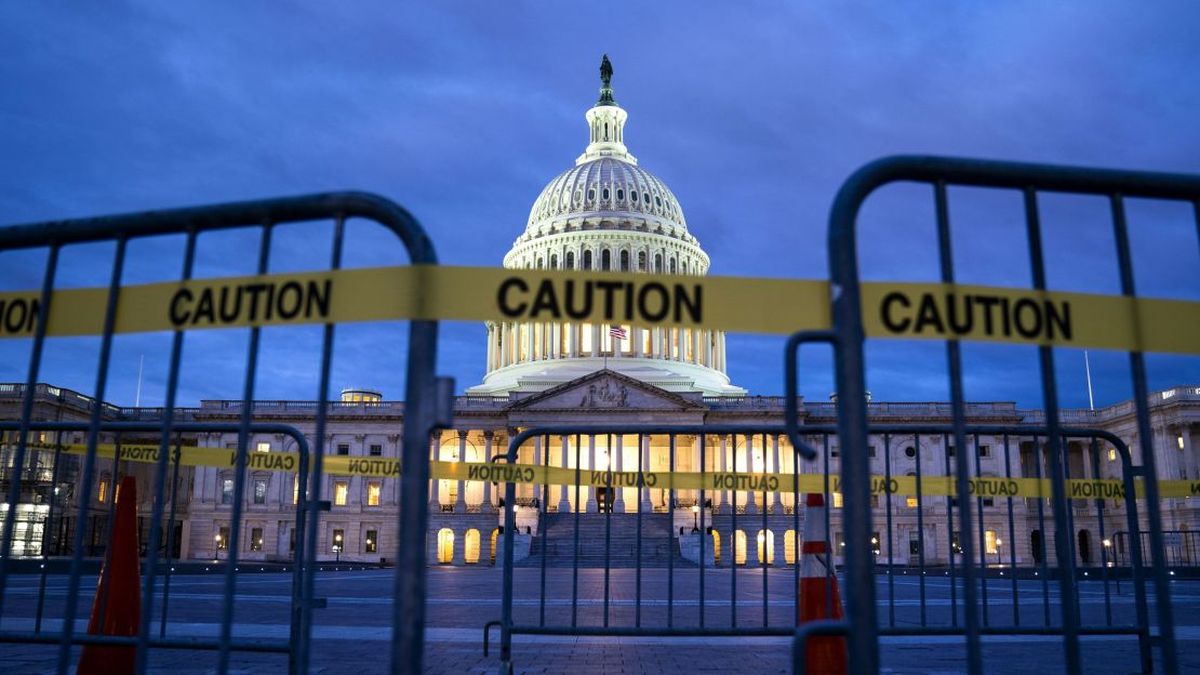A spending bill backed by Donald Trump failed in the US House of Representatives, as dozens of Republicans defied the president-elect, leaving Congress without a clear plan to prevent an imminent government shutdown known as “shutdown” which represents a paralysis of public services just before Christmas.
The vote laid bare divisions in Trump’s Republican Party, which could resurface next year when they control the White House and both chambers of Congress. The president-elect had pressured legislators to resolve the pending issues before taking office on January 20, But members of the party’s right wing refused to support a package that would increase spending and pave the way for a plan that would add trillions more dollars to the federal debt.which amounts to US$36 billion.
The keys to understanding the “shutdown”
A shutdown is the English term to refer to a federal government shutdown in the United States. It occurs when Congress fails to pass a budget or funding resolution in time to keep federal agencies and services running. This can happen due to political disagreements over how to spend public money or over budget priorities.
This has an impact on essential and non-essential activities. For example, many federal employees are sent home without pay (“furloughed”) and cannot work until funding is resolved. Government agencies considered “non-essential” are museums, national parks or administrative services.
On the other hand, some essential services, such as the control of air traffic, national security and public hospitals, are affected by the cessation of activities of employees working without pay until funding resumes.
As it happens, the package failed by a vote of 174-235, just hours after being hastily put together by Republican leaders to meet Trump’s demands. A previous bipartisan agreement was scrapped after Trump and Elon Musk, the world’s richest person, objected on Wednesday.
The Speaker of the House of Representatives, Republican Mike Johnson, did not offer details about the next steps after the failed vote. “We will find another solution,” says Reuters.
When financing expires
Government funding expires at midnight Friday. If lawmakers do not extend the deadline, the US government will begin a partial shutdown this Saturday. “Congress must eliminate, or extend until perhaps 2029, the ridiculous debt ceiling. Without this, we should never reach an agreement“Trump wrote on Truth Social hours after the bill failed.
Thursday’s failed project was very similar to the previous version that Musk and Trump had criticized as a pro-Democrat boondoggle. It would have extended government funding through March, provided $100 billion in disaster relief and suspended the debt limit. Republicans removed other items included in the original package, such as a pay raise for lawmakers and new rules for pharmacy benefit managers.
At Trump’s insistence, heThe new version would also have suspended the national debt limits for two years, a maneuver that would make it easier to pass the dramatic tax cuts he has promised.
The path to tax cuts
Democrats criticized the project, calling it an excuse for a tax cut that would mainly benefit the wealthy like Musk, while putting the country into additional trillions of dollars in debt. “How dare you lecture America on fiscal responsibility?” Democratic leader Hakeem Jeffries said during the debate.
Even if the bill had passed the House, it would have faced great difficulties in the Senate, currently controlled by Democrats. The White House said the president Joe Biden I didn’t support it.
Previous debt ceiling disputes have sparked fear in financial markets that a US government default would send credit shockwaves around the world. The limit is suspended under an agreement that technically expires Jan. 1, though lawmakers likely won’t confront the issue until the spring.
elon musk.png
When he returns to office, Trump plans to implement tax cuts that could reduce income by US$8 trillion in a decade, increasing debt without compensatory cuts in spending. He has promised not to reduce retirement and health benefits for seniors, which make up a large portion of the budget and are projected to grow significantly in coming years.
The last government shutdown occurred between December 2018 and January 2019, during Trump’s first term in the White House.
The tension also threatened the position of Johnson, a moderate Louisiana politician who unexpectedly took over as House speaker last year after the party’s right wing ousted Kevin McCarthy over a funding bill. Johnson has repeatedly had to turn to Democrats to get legislation passed when he has been unable to get enough votes from his own party.
Several Republicans said they would not vote for Johnson as president when Congress returns in January, potentially triggering another leadership battle in the weeks before Trump takes office.
Source: Ambito




